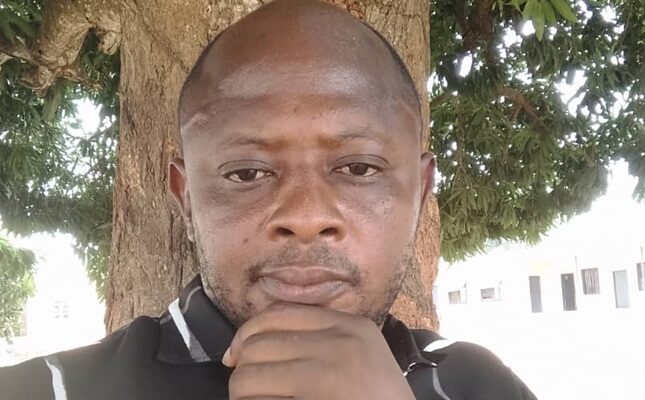The corrosion of political direction in Kogi East is not merely a symptom of poor electoral choices—it is the byproduct of a deeper and more worrisome national malaise: the retreat of elder statesmen from their sacred duty of moral supervision and strategic intervention. This region, once the political heartbeat of Kogi State, now finds itself caught in the web of power misappropriation, leadership scarcity, and ideological barrenness. And in the midst of this decline, those once revered as political life benchers—seasoned patriots and pathfinders of yesterday—have chosen silence over stewardship, detachment over duty.
No great democracy thrives without the sustained participation of its wealth of wisdom class. In functioning societies, age does not signify retirement from relevance. It signals ascension into mentorship and enduring civic engagement. In the United Kingdom, elder voices shape policy through the House of Lords. In the United States, past presidents and retired senators are still pivotal players—offering direction through think tanks, lectures, commissions, and bipartisan reform platforms. In Ghana and South Africa, former heads of state are deeply involved in transitional governance. Their impact persists beyond tenure. Nigeria, and Kogi East by extension, cannot afford to tread another path where yesterday’s heroes and heroines excuse themselves from today’s duty.
The time has come to admit a bitter truth—governance passivity among elders has become a catalyst for continued political failure. The elders, who once brokered the emergence of visionary candidates and defended regional interests with courage, now watch with disturbing detachment as incompetence takes the driver’s seat. The corridors of power, once moderated with foresight and prudence, have been left vulnerable to political traders and ideological charlatans.
The great Nigerian nationalist, Chief Obafemi Awolowo, rightly stated,
“The worst disservice that the elder generation can render to the country is to pretend that their work is done when the next generation is not ready.”
Kogi East’s younger generation is willing—but not adequately prepared. They are passionate—but largely politically orphaned. In a system where legacy should guide leadership, the absence of moral torchbearers has allowed ambition to thrive unchecked. This generation cannot be blamed entirely. They walk through a political wilderness without a compass, while the elders who once illuminated paths now mutter from the shadows or retreat into their enclaves.
The crisis is not just in numbers or structure—it is ethical. The custodians of Igala values must return to the fray, not as politicians, but as real fathers, mentors, watchmen, and ideologues. It is no longer acceptable for life benchers to resign themselves to the pages of history while the present groans for their wisdom. They must speak publicly, write openly, engage relentlessly, and rebuke boldly. Their voices must be louder than the ambitions of sponsored contenders.
As Dr. Nnamdi Azikiwe famously opined,
“A country that forgets to invest in the character and intellect of its future leaders is preparing its own funeral.”
This, exactly, is the danger that looms over Kogi East. If the life benchers continue to recline into irrelevance, what shall guide the next governors, senators, commissioners, and local champions of development? The elders must understand that the tools of leadership are not confined to ballots and offices; they are more powerfully conveyed through conviction, mentorship, and historical responsibility.
Now is the time to call for a reawakening. Elders must organise ideological retreats, community forums, and regional summits—not to divide, but to define. Let them build schools of thought, think tanks rooted in regional values, and political mentorship centres. Let them become custodians of discipline, strategy, and legacy. Leadership cannot remain trial-and-error. It must be taught, nurtured, and modelled.
They must engage the traditional institutions, academic environments, and faith-based bodies to re-introduce the lost values of public service, truth, and patriotism. If they do not rise to provide that mentorship and structure, then the future will be a theatre of recycled confusion. As Mahatma Gandhi warned,
“A nation that doesn’t educate its citizens in character and truth will breed rebels instead of reformers.”
The political life benchers of Kogi East must now recognise that their season is not over. Their influence is not redundant. Their silence is not harmless. What they fail to correct today, their children and grandchildren will inherit tomorrow. Their legacy will not be determined solely by what they did in office, but by what they allowed after they left. If they do not rise to interrupt the trajectory of mediocrity, then history will judge them—not for what they failed to do in the past, but for what they watched happen in their presence.
The Igala proverb affirms,
“Onyi ki ma n’ogijo Olupu kia kola ‘ofili n, onu omo chi ukpota kpai owuluwulu,”
“A house without the counsel of elders is ruled by famine and confusion.”
That famine is already here. It is a famine of direction, unity, and ethical leadership. If Kogi East is to regain its voice in the affairs of the state, then those whose voices once echoed with command must break their silence. If the region is to become politically strategic again, then its elders must mentor and multiply leaders with capacity and vision. If the ancestral hopes of the Igala people are not to be squandered, then the political life benchers must re-emerge, not with pride, but with purpose.
Nelson Mandela, reflecting on the responsibility of moral leadership, once said,
“There is no passion to be found playing small – in settling for a life that is less than the one you are capable of living.”
Let the life benchers of Kogi East rise not to be remembered, but to rebuild. Let them re-enter the terrain—not as nostalgic veterans, but as architects of tomorrow’s greatness. Let their legacy be not in titles or eulogies, but in foundations laid for the future. Let them write books, convene councils, mentor silently, and speak boldly. The region waits. The people hope. The youth watch. Time calls.
Kogi East must succeed as our elders are beginning to rise in unity and wisdom.
– Inah Boniface Ocholi writes from Ayah – Igalamela/Odolu LGA, Kogi state.
08152094428 (SMS Only)




